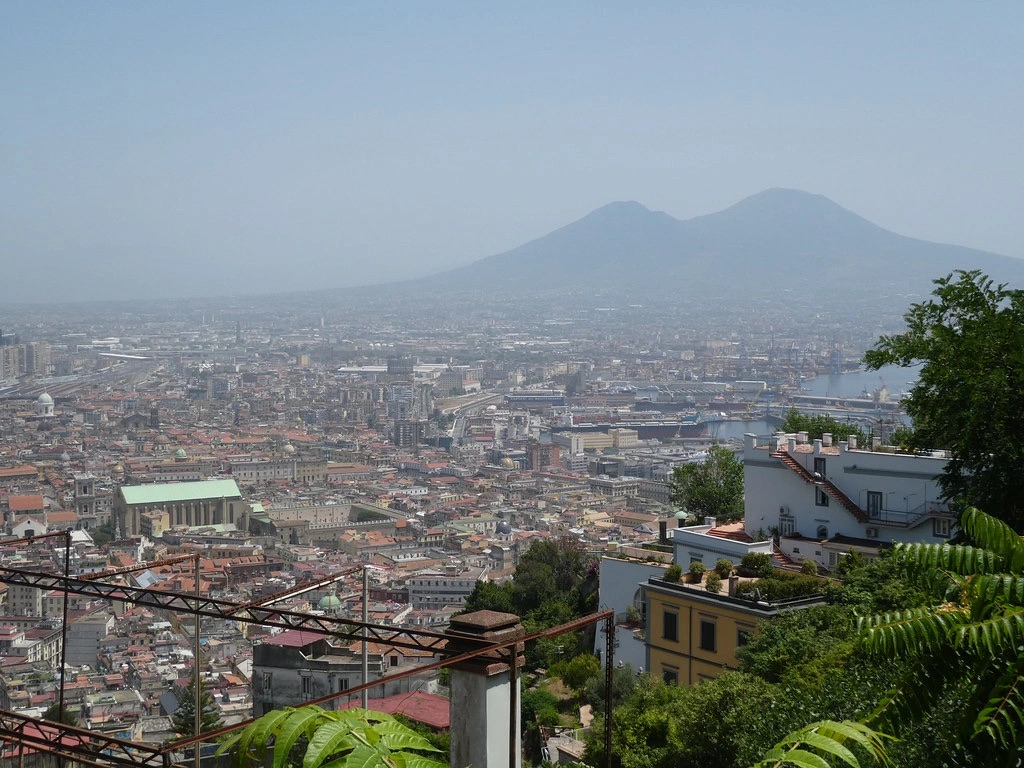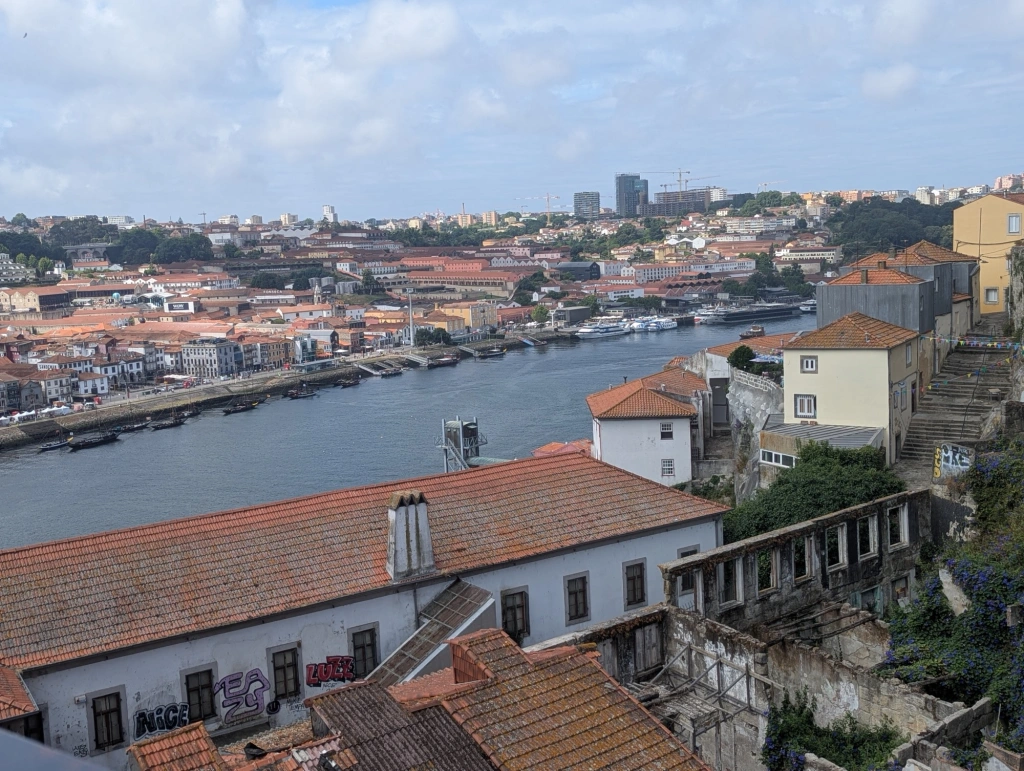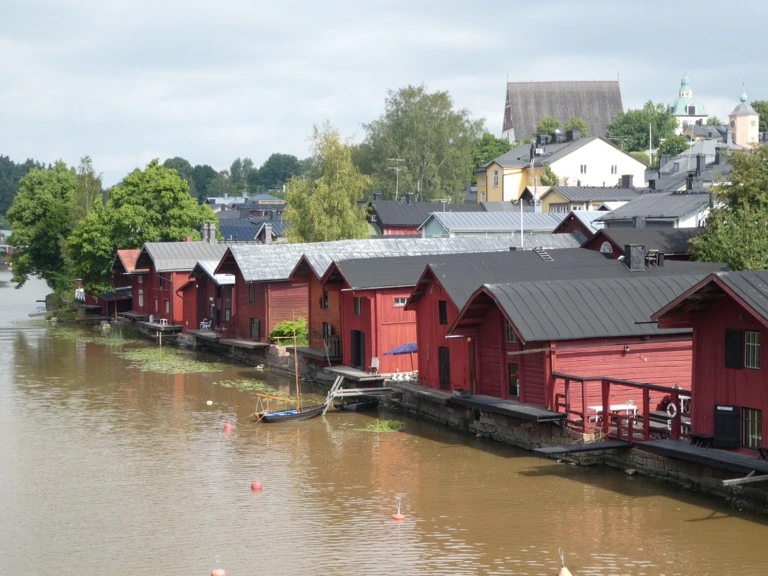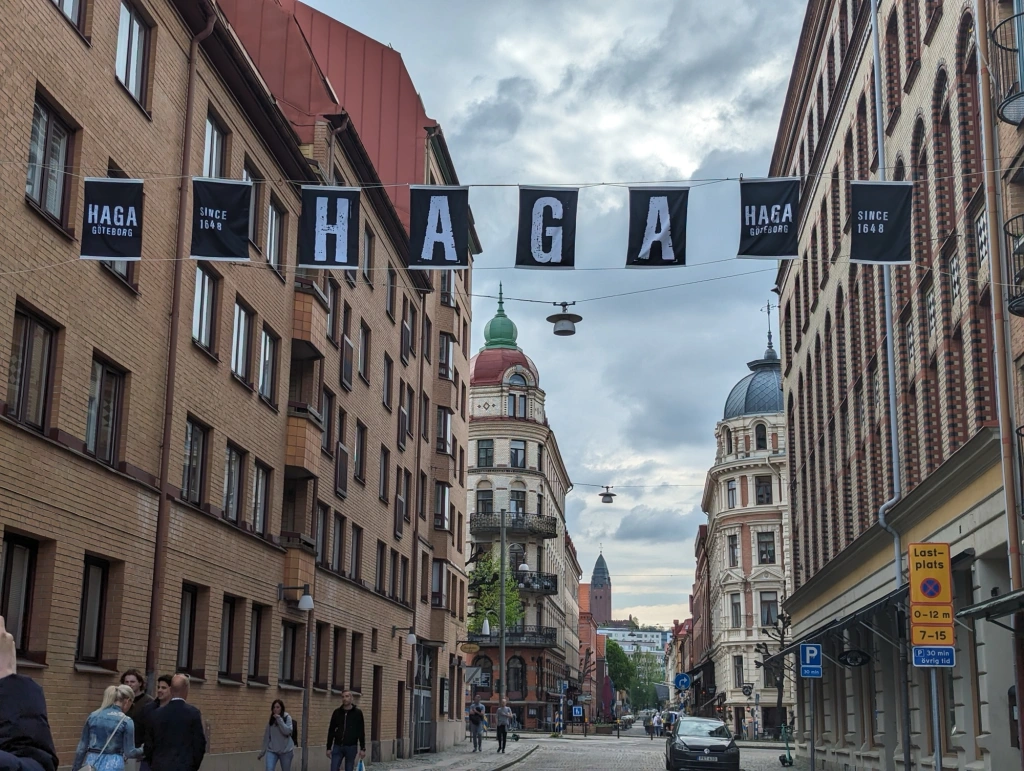Naples is a port city in the Campania region of southern Italy. With 4.4 million inhabitants it’s the third largest city in the country. Most visitors flying into Naples airport don’t stop off to explore the city but instead pick up hire cars and head south to explore the Amalfi coast. Despite the city previously having had a reputation for being somewhat ‘gritty’, it’s tidied up its act and after recently spending a weekend there we found Naples to be perfectly safe and an interesting place for a weekend break.
Naples Centro Storico (old town) is a UNESCO World Heritage Site and contains a wealth of art with its Baroque churches, Renaissance-era piazzas, ancient Roman walls and castles. With a one day public transport ticket valid on bus, metro, local trains and the city’s funiculars costing only €4.50 (£3.84) it’s quick and easy to get around. Below are my suggested places to visit:
Castel Nuovo – an imposing medieval Renaissance fortress that has guarded Naples for almost 800 years. Constructed between 1279-1282, the castle boasts five circular towers and an intricately carved triumphal archway. It was named ‘new castle’ in 13th century to differentiate it from the city’s other fortresses. Inside, head to the Armoury Hall to view the Roman ruins beneath the glass floor and the Palatine Chapel to view the historic frescoes. Standard admission €6 (£5.11).
Piazza del Plebiscito – a vast pedestrianised public square and home to many of the city’s most important buildings.
Royal Palace – built when Naples was under Spanish rule, the Palazzo Teale is home to lavishly decorated royal apartments and was one of four royal residences used by the Bourbon kings. The former palace is now a museum showcasing the history of Naples from 17th – 19th century. Standard admission €10 (£8.53).
San Fransesco di Paola Basilica – an imposing neoclassical church fronted by a semi-circular columned gallery. Located across the square from the Royal Palace.
Church of St. Ferdinando
The Church of San Ferdinando is located on the Piazza Trieste e Trento near the entrance to the Royal Palace. The church was designed and built (1636) by Cosimo Fanzago in a Baroque architecture style.
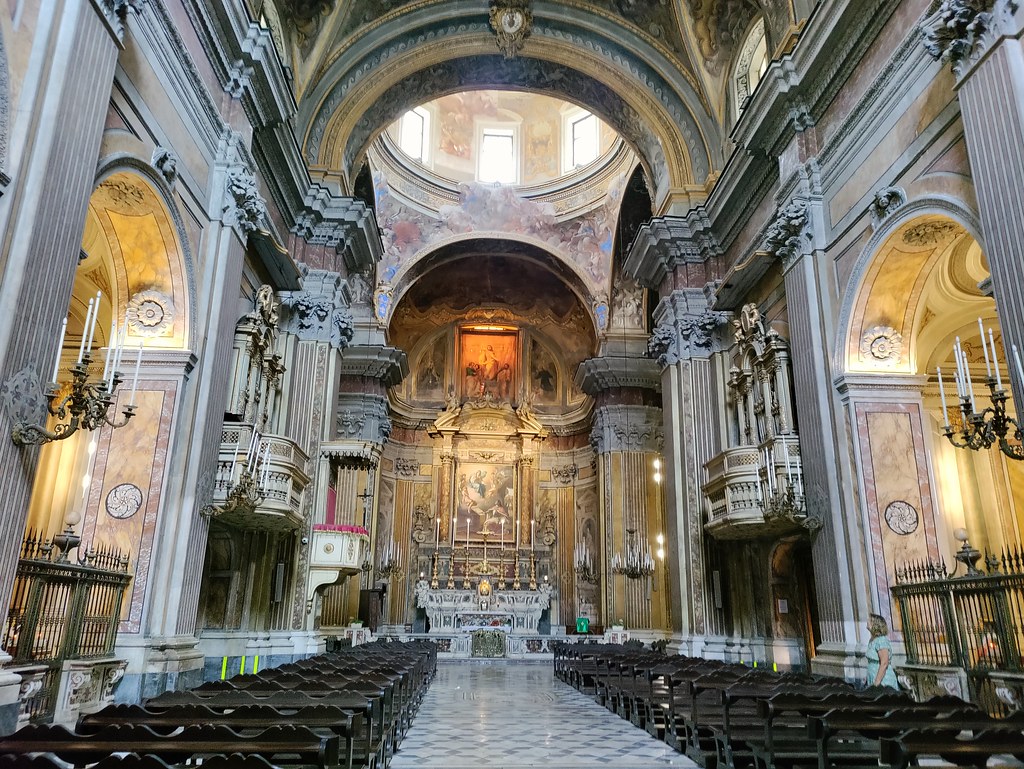
Galleria Umberto I – an exquisitely designed 19th century shopping arcade with a steel and glass roof and beautiful mosaic floors.
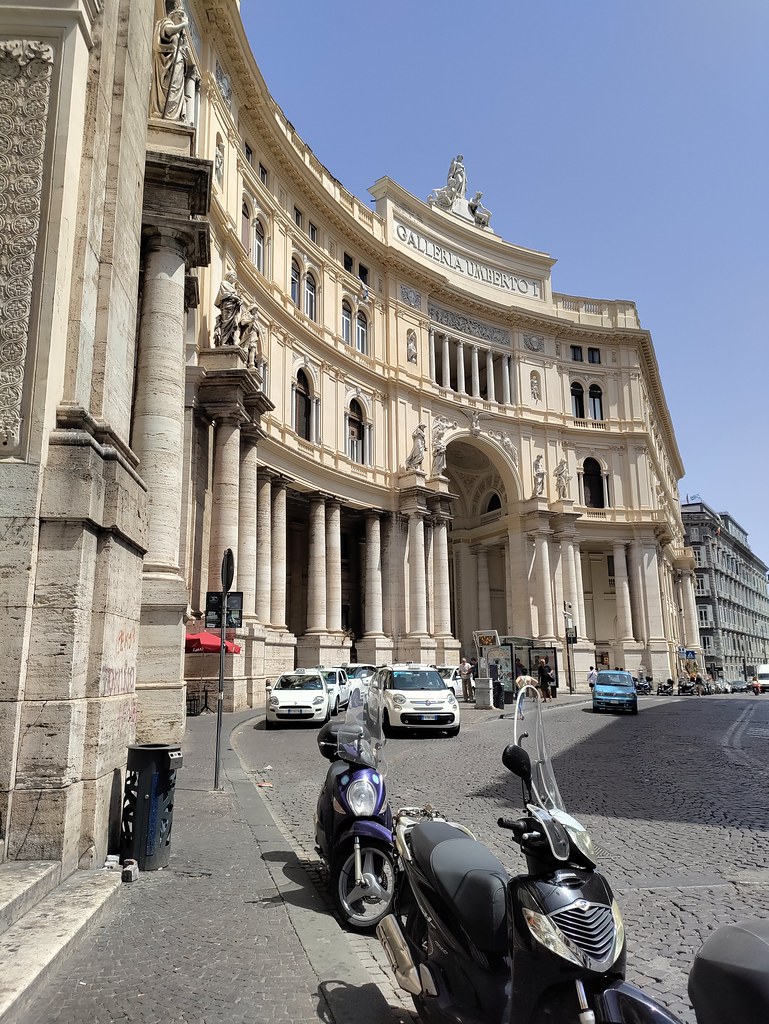
The galleria was built at the end of the 19th century and is home to numerous shops and cafes. If you have visited the Galleria in Milan you will notice similarities.
Via Toledo – a historic street dating back to 1536 andone of the main shopping streets in the city. Stretching for 1.2km from Piazza Dante in the north to Piazza Trieste e Trento in the south, it’s home to many churches, shops, restaurants and bars. Take the metro from Toledo station to view its spectacularly decorated concourse in a sea of blue mosaics.
Spaccanapoli – one of the liveliest parts of the old town. It’s a collective name for several narrow streets in the area. Wander along Via Benedetto and onto Piazza Gesù Nuovo. The district is popular with tourists and locals alike and lined with dozens of small restaurants, bars and shops.
For stunning views – take the Funiculare Centrale from Via Toledo up the steep hill to the stylish neighbourhood of Vomero.
This affluent district has a more relaxed feel compared to the frenetic nature of the old town below and plenty of inviting cafes to enjoy a bite to eat. Whilst there, take a tour of Castel Sant’ Elmo and from the viewpoint terrace enjoy a stunning panorama of the Bay of Naples and Mount Vesuvius.
Food and Drink:
Coffee and cakes – if you only visit one cafe, make it one of the most famous in southern Italy. Founded in 1860 this beautifully preserved art-nouveau cafe with its opulent interior is a joy to behold. Prices are quite reasonable for such a grand cafe and with a central position, it’s the perfect location for a morning cappuccino.
Pizza – Naples is the birthplace of the pizza which is reason enough to sample an authentic Margherita whilst in town. With a thin crust, soft and slightly sloppy centre it’s divine and costs only €7 (£5.97) to eat in. I recommend heading to L’Antica Pizzeria da Michele but as it’s not possible to book in advance there’s usually a long wait for a table. You might recognise the pizzeria as it featured in the film adaptation of Elizabeth Gilbert’s memoir Eat, Pray, Love where Julia Roberts character dines.
Naples Harbour: stretching from the Castel Nuevo to the Piazza San Giovanni Battista, view the busy working port from where you can catch ferries to Sorrento and Capri.
Further afield:
Capri – take a ferry across the Bay of Naples to the island of Capri. It’s a popular destination for the rich and famous but quite affordable for a day trip.
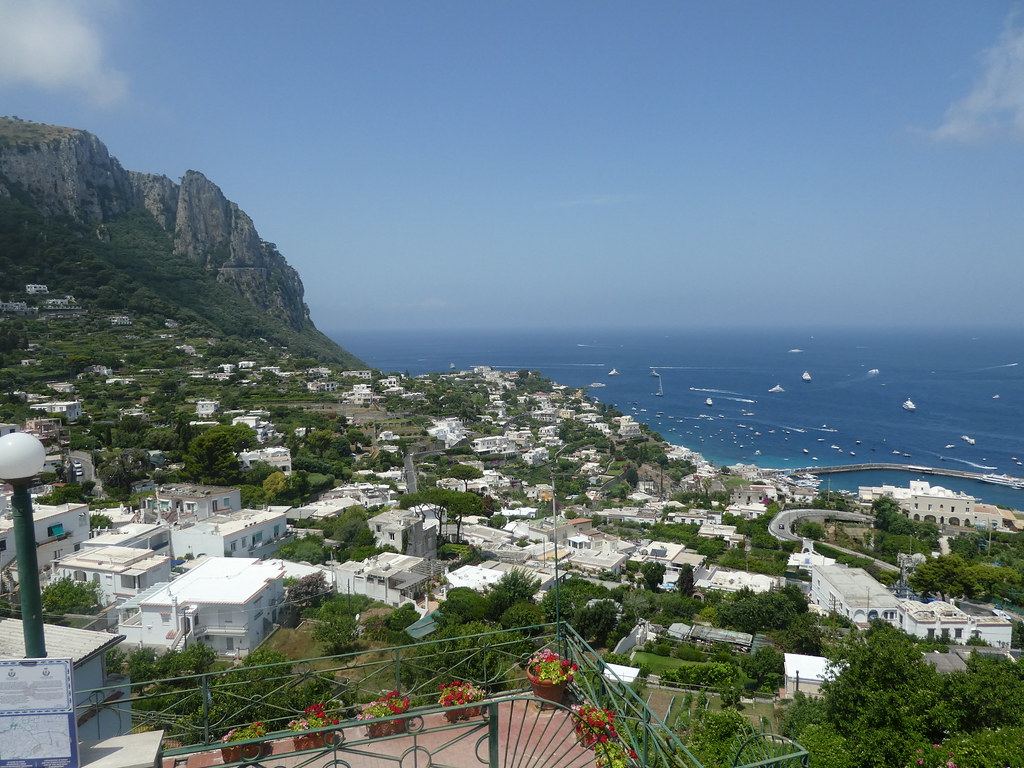
Take the historic funicular from the marina up to Capri Town. Single fare €1.80 (£1.53). Enjoy the stunning views and beautiful flowers lining the narrow streets and squares. Browse the designer shops and sip a cooling drink on the terrace of one of the many inviting cafes.
Sorrento – enjoy a day in the beautiful coastal town of Sorrento by either taking the Circumvesuviana train from Napoli Centrale station (single fare from €4.90 (£4.18) or catch a ferry from the port of Naples.
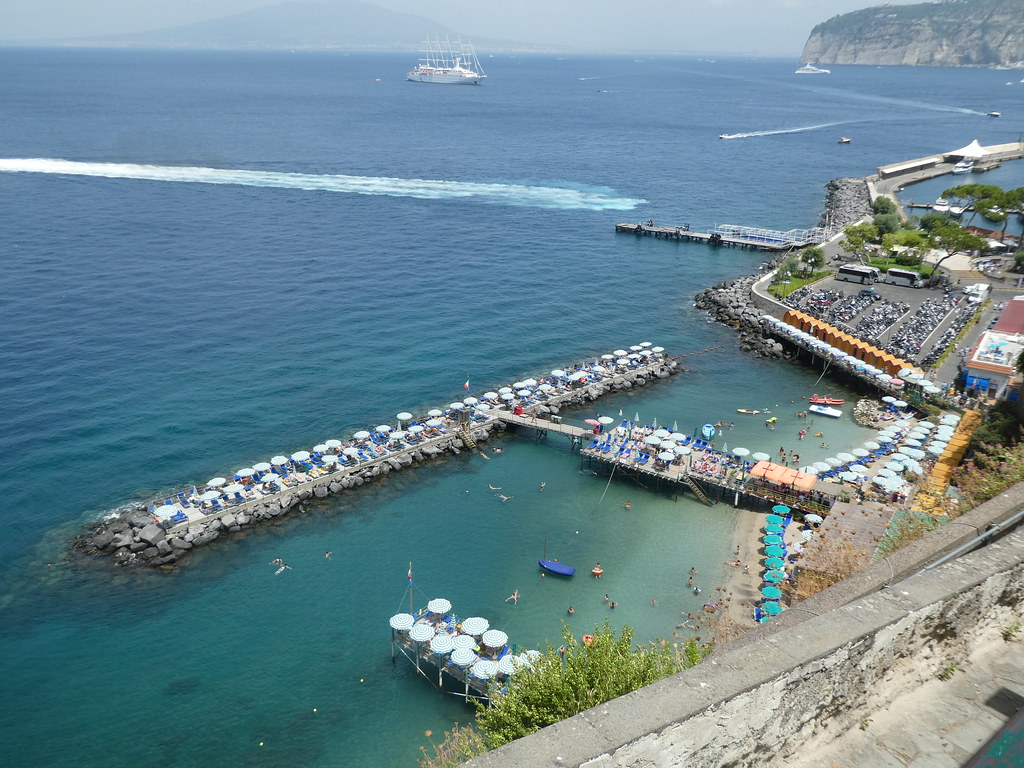
The town is quite compact and easily walkable with streets radiating out from the central square, Piazza Tasso. Head down the stone steps or take the lift down to the marina €1 (£0.85) and enjoy a drink overlooking the azure blue Mediterranean Sea.
The train line between Naples and Sorrento also stops at Pompeii enabling a visit to both Pompeii and Mt. Vesuvius National Park combined with a visit to Sorrento. We didn’t have time to add this to our itinerary but hope to visit sometime in the future.

